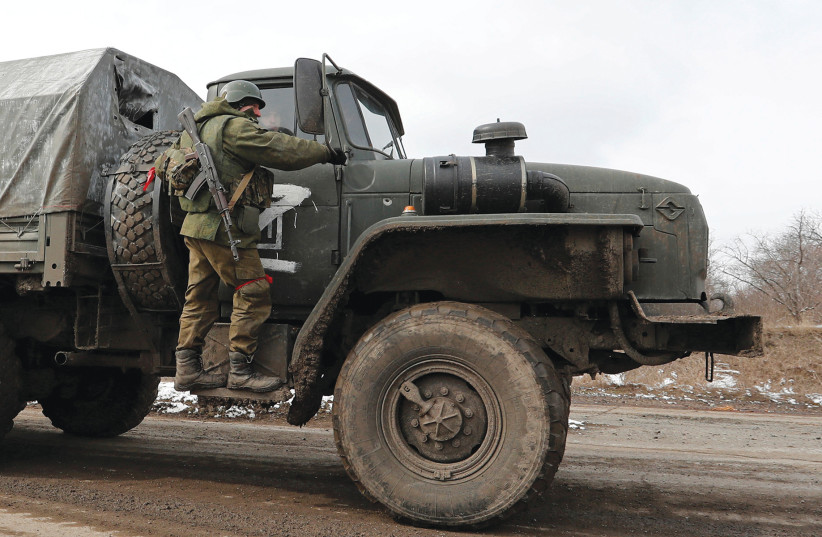The logistical problems that the Russian army suffers from in Ukraine are likely to worsen as a result of the Kerch Bridge Attack on October 8, according to British Intelligence.
The repair efforts are still continuing, and the bridge is open to "some traffic," however, there is a rather large queue of cargo trucks that are backed up near the crossing point.
The Kerch Bridge is 19 kilometers long (11.8 miles) and was built by Russia after it declared Crimea to be Russian territory in 2014. Russia has used the bridge to move military equipment, ammunition and personnel to battlefields in southern Ukraine.
Ukrainian President Volodymyr Zelensky has deemed the bridge illegal and justified the attack in a tweet, saying: "Everything illegal must be destroyed, everything stolen must be returned to Ukraine, everything occupied by Russia must be expelled."
Logistics problems for the Russian army in Ukraine
The logistical supply flow has changed due to the bridge being shut down, with the supply arriving mostly through occupied Mariupol, as part of a Russian attempt to compensate for the reduced supply capacity of the Kerch Bridge, according to British Intelligence.

The Russian position in southern Ukraine is in a precarious state, with their presence in the Kherson region strained. As a result, its supply routes are more dependent on the lines going through Zaporizhzhia Oblast, which are crucial to the Russian occupation of southern Ukraine. The City of Melitopol became a junction of supply routes and currently hosts a major Russian aviation presence.
The Russian administration has announced an "organized, gradual displacement" of civilians from four towns on the Dnipro River, perhaps indicating the tough position the Russian army found itself in. Russian forces in the Kherson region had lost ground to the Ukrainian Armed Forces, including those close to the city of Kherson.
